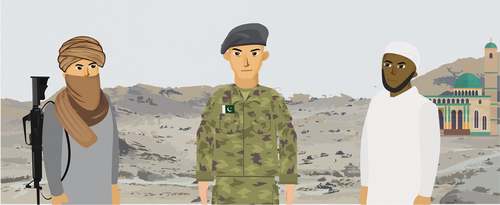Canadian police conclude investigation, term Karima Baloch's death 'non-criminal'

Toronto Police on Tuesday evening termed the death of Baloch rights activist Karima Baloch, who went missing over the weekend before being found dead, as "non-criminal".
Karima Baloch, who hailed from Balochistan and was also known as Karima Mehrab, went missing on Sunday in Toronto’s downtown waterfront area. She was living in the Canadian city in exile for about five years.
Police said her body was found on Monday.
On Tuesday, the Toronto Police Service said it was aware of "heightened community and media interest" surrounding the investigation of Karima's death.
"Earlier today, we confirmed a 37-year-old woman was sadly located deceased on Monday, December 21, 2020.
"The circumstances have been investigated and officers have determined this to be a non-criminal death and no foul play is suspected," the police said on Twitter. It added that Karima's family had been updated on the findings.
Amid unverified reports — mostly in the Indian media — that Karima had been killed, a Toronto Police spokesperson had told Dawn.com earlier on Tuesday that authorities were "currently" investigating the death as non-criminal and that there were "not believed to be any suspicious circumstances".
Karima was a prominent student organiser who campaigned for Balochistan’s rights and later moved to Canada amid threats. She was named one of the BBC’s 100 inspirational and influential women of 2016.
According to her Twitter profile, Karima was the former chairperson of the Baloch Students Organisation - Azad and the Baloch National Front (BNF) Balochistan. She was a vocal campaigner for Baloch rights and missing persons.
Karima was critical of the Pakistani establishment and had been living in Canada since 2016, where she had been granted asylum. A close friend of hers told the BBC she was receiving threats while in Canada.
Amnesty International South Asia on Tuesday tweeted that her death was shocking and should be “effectively investigated”, while the Human Rights Council of Balochistan requested the Canadian government to look into the matter.















































